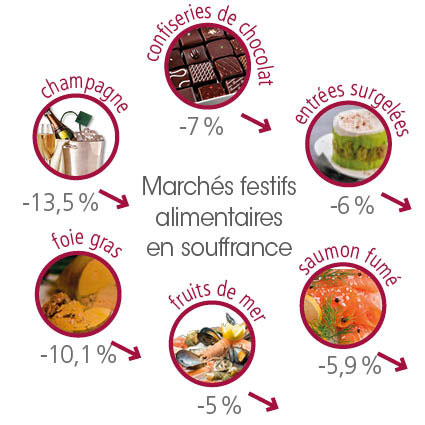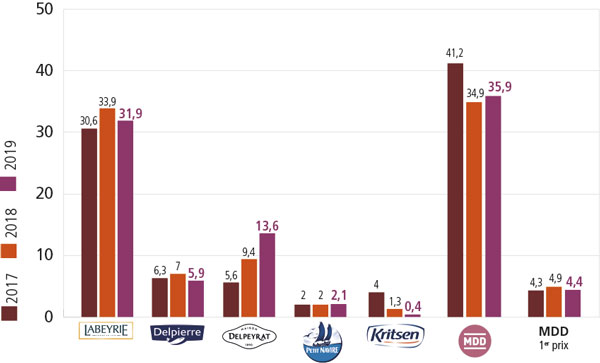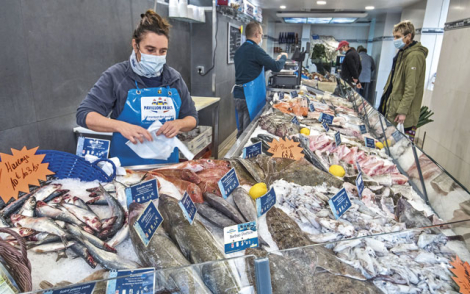|
Decrease in sales of festive products
Market shares from 2017 to 2019
|
In 2018, yellow vests had become party poopers. This year, the Egalim Act disrupted Christmas holiday shopping. In the last quarter of the year, sales of smoked salmon were down 5.9% compared with 2018. Limits imposed on promotional discounts impacted the balance sheet. “The French were more modest in their consumption behavior”, explains Gaëlle Ouari-Bourdon, communication and digital manager at Labeyrie fine foods. “Regarding smoked salmon and foie gras, the main obstacle to purchase was price. For several years now, customers have been buying the promotion and not the brand. The impact of États généraux de l’alimentation (EGA) is lower if the brand is well-known.” While the last quarter of the year was down, with a pre-season deficit compared to 2018, sales in the run-up to Christmas Eve and New Year’s Day, in the so-called “festive” period, were up 1.6% in terms of quantities. “Consumers bought their products very late for Christmas” says Agnès Barral, Marketing Manager for Seafood Catering and Self-Service Fresh Catering at Labeyrie fine foods. 4,116 tons of salmon were sold during this period, 40% of which came from Norway. Scottish salmon and organic salmon grew by 7%, with market shares of 27% and 7%. Labeyrie is by far the leading national brand, accounting for almost a third of salmon sales. This figure rises to 37.8 % with the share of Delpierre, owned by the Labeyrie fine foods group. The leader is followed by Delpeyrat, growing strongly for the past two years. Kritsen has almost disappeared from the national brands. Private labels are also on the rise compared to 2018, but are still down compared to 2017. The first year of implementation of the Egalim Act collided head on with the promotional brands, and they will have to reinvent themselves to appeal to an increasingly demanding consumer in terms of quality and price. Guillaume JORIS
|




